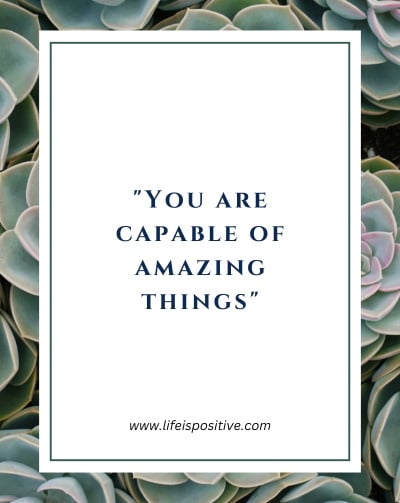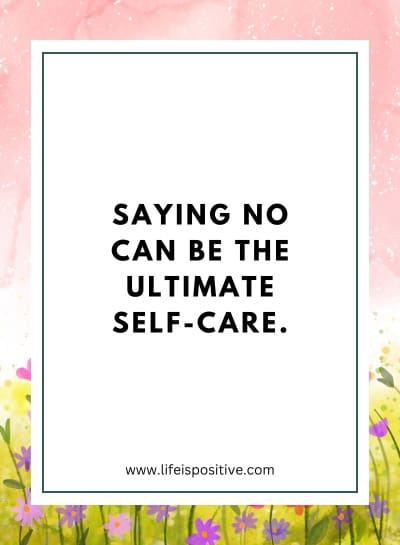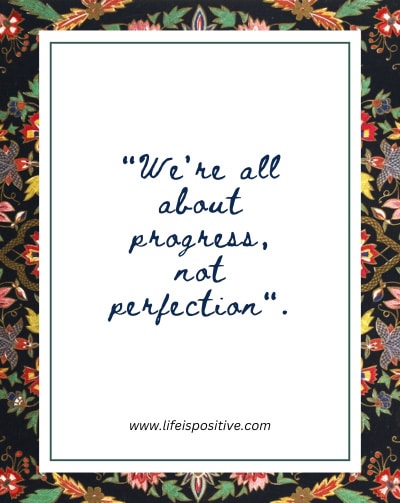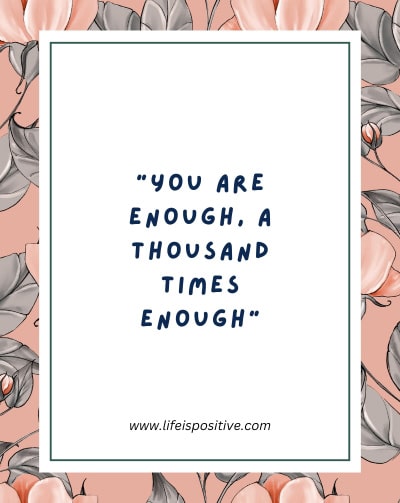|
Getting your Trinity Audio player ready...
|
Ever catch yourself agreeing to something you didn’t want to do, staying silent when your heart screamed “speak up,” or letting someone’s rude comment slide because you didn’t want to cause a scene? If so, you’re not alone—and it’s time to learn how to stand up for yourself confidently.
The good news? Standing up for yourself isn’t about being rude, aggressive, or making enemies. It’s about valuing yourself enough to speak your truth, set boundaries, and protect your peace.
But why is it so hard to stand up for ourselves? Most of us were taught to be “nice,” keep the peace, or avoid conflict. We fear rejection, criticism, or hurting others’ feelings. But the cost of constant people-pleasing is high—it drains your energy, damages your self-esteem, and leaves you feeling invisible. That’s why learning how to stand up for yourself is an essential life skill.
So, how do you go from feeling like a pushover to becoming your own best advocate? Let’s explore 10 powerful tips for standing up for yourself confidently, without losing your cool or your kindness.
1. Know Your Worth
If you want to know how to stand up for yourself, it all starts with recognizing your own value. Seriously—if you don’t believe you deserve respect, it’s tough to expect it from others.
Take a minute to think about your strengths, skills, and what makes you, well, you. What do you bring to the table in your friendships, at work, or in your relationships? You’ve got qualities that matter, and you deserve to be treated with kindness and respect, just like anyone else.
So before you demand respect from others, make sure you’re giving it to yourself first.
2. Set Clear Boundaries (And Stick to Them)
Learning how to stand up for yourself starts with knowing your boundaries—and making sure others respect them. Boundaries can be anything from needing alone time to recharge, avoiding constant texting, or not accepting last-minute plans.
They’re like your personal space bubble, but for your mind, emotions, and energy. And here’s the thing: people can’t respect boundaries they don’t know exist.
So be clear. Instead of saying, “I’m kind of busy,” try, “I’m not available right now. Let’s talk later.” It’s direct, polite, and leaves no room for confusion. Remember, you teach people how to treat you by what you allow. Respect yourself enough to say what you need.
3. Use “I” Statements Instead of “You” Statements
One of the smartest ways to master standing up for yourself without starting World War III is by using “I” statements. They’re like a secret weapon for clear, calm communication.
Instead of saying, “You never listen to me,” which instantly makes people defensive, try, “I feel unheard when I’m interrupted.” See the difference? You’re sharing your feelings without making it sound like an attack. This little shift keeps the conversation respectful and productive.
It’s like saying, “Hey, here’s how I feel,” instead of, “Here’s what you’re doing wrong.” Next time things get tense, drop an “I” statement, and watch the magic happen.
Read: Why Staying Silent is Holding You Back
4. Master the Art of Saying “No” Without Guilt
One of the toughest but most life-changing lessons is mastering the art of saying “no.” It’s a game-changer. Whether it’s turning down an invitation you’re not excited about, saying no to extra work when you’re already drowning, or refusing to lend money, saying “no” is an act of self-respect.
And here’s the best part—you don’t owe anyone a detailed explanation. A simple, “No, thank you,” is enough. If someone pushes back, you can calmly repeat yourself: “I’ve already made my decision.” Remember, saying “no” doesn’t make you rude—it makes you honest.
You’re not a people-pleasing robot; you’re a human with boundaries. And that’s something to be proud of.
5. Use Confident Body Language
Standing up for yourself isn’t just about the words you choose—it’s about how you show up. Body language is your secret weapon. Start by standing tall—good posture is like an instant confidence boost.
Make eye contact, speak clearly, and avoid crossing your arms or fidgeting. Think of it this way: your body should be saying, “I know my worth,” even if your brain’s still catching up.
And here’s the magic—acting confident, even if you’re faking it at first, actually helps you become more confident over time. So chin up, shoulders back, and own your space.
6. Stay Calm and Don’t Apologize for Everything
If you’ve ever caught yourself saying “sorry” when someone else bumped into you, congratulations—you might be a serial over-apologizer. But don’t worry, you’re not alone. Part of mastering how to stand up for yourself is learning to break this habit.
Save your apologies for when they’re genuinely needed—like if you’ve made a mistake or hurt someone’s feelings. For everything else, ditch the “sorry.” Instead of “Sorry, but can I ask a question?” try “I have a question.”
Instead of “Sorry, I’m busy,” say, “I’m not available right now.” You’re not being rude—you’re being clear, direct, and confident. So take a deep breath, drop the unnecessary “sorry,” and watch your confidence grow.
7. Choose Your Battles Wisely
Not every rude comment or passive-aggressive jab deserves a front-row seat in your mental theater. Part of learning to stand up for yourself is knowing when to pick your battles.
Before you jump into a showdown, ask yourself: Is this a one-time thing, or is it becoming a pattern? Will speaking up make things better, or will it just stir up unnecessary drama?
Sometimes, the most powerful way to protect your peace is to simply walk away. But when something truly matters to you—your values, your dignity, or your well-being—don’t hesitate to speak up. Silence can be golden, but your voice is your power. Use it wisely.
8. Prepare a Go-To Phrase
One of the smartest hacks is having a go-to phrase in your back pocket for those awkward moments. You know, the ones where your mind goes blank, and you end up either freezing or over-explaining yourself. Not anymore. With a ready-made phrase, you can keep your cool and stay confident.
Try something like, “I’m not comfortable with that,” “I don’t appreciate being spoken to that way,” or “I need some time to think about it.” These magic phrases save you from getting flustered and help you set clear boundaries without the drama.
Having one locked and loaded means you’re ready to stand up for yourself, even when you’re caught off guard. Simple, direct, and powerful.
Read: How To Stand Up For Yourself And Get What You Want
9. Practice Assertiveness with Small Steps
If standing up for yourself feels like a full-blown superhero challenge, start small. Seriously, you don’t have to leap straight into epic confrontations. Practice in low-stakes situations.
If a friend cuts you off mid-sentence, calmly say, “Actually, I wasn’t finished.” If a barista hands you the wrong order, don’t just sigh and sip—politely ask them to fix it. These tiny moments may seem insignificant, but they’re like mini confidence workouts.
The more you speak up in small situations, the stronger your assertiveness muscle gets. And before you know it, you’ll be setting boundaries like a pro.
10. Surround Yourself with Supportive People
Here’s a truth bomb: The people you surround yourself with can make or break your confidence. Start by hanging out with people who actually have your back—friends who respect you, cheer you on, and remind you of your worth even on your worst days.
Positive, supportive friends are like sunshine for your self-esteem—they boost your confidence and even help you practice setting boundaries. On the flip side, toxic people are like emotional vampires—they drain your energy, make you doubt yourself, and leave you feeling small.
So choose wisely. Build your circle with those who lift you up, not drag you down.
Read: The Traits That Make Her Stand Out
Final Thoughts: How to Stand Up for Yourself Confidently
Knowing how to stand up for yourself is a total game-changer. It’s not just about being bold—it’s about self-respect, self-love, and living a life that actually feels good to you.
When you stand up for yourself, you’re teaching people how to treat you. You’re protecting your time, energy, and mental peace. You become more confident, less anxious, and way more in control of your own life.
But let’s be real—standing up for yourself is a skill, and like any skill, it takes practice. You won’t become a boundary-setting pro overnight, and that’s totally fine.
Start small, take it step by step, and remember: Your voice and your needs are just as important as anyone else’s. And remember—your voice matters, so use it.
For more empowering content, connect with our vibrant community here ➡️ Social Media.




